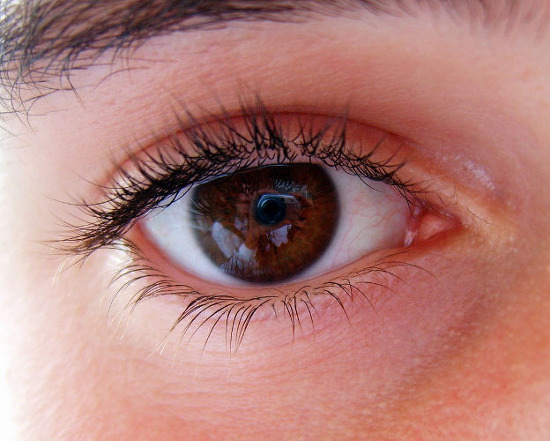Prospects for electronic retina transplant for the blind
The positive test results on the electronic implantation of the retina for the blind were published by Retina Implant AG (Germany) in the medical journal of British Proceeding of the Royal Society B on February 19.
>>>Device that helps blind people see exactly 89%
This is the research result of the second stage of electronic implant technology for the retina, developed by Retina Implant AG in the last 9 years.
The announcement came shortly after the US Food and Drug Administration (FDA) authorized the "bio-eye " (or "electronic biological eye" ) business with the name Argus 2. , by Second Sight Medical Products (USA), which is a competitor of Retina Implant AG.
According to the announcement, Retina Implant AG Company and researchers at the University of Turing Eye Hospital (Germany) have successfully tested the installation of an electronic device in the retina of 9 blind people due to the Retinitis pigmentary disease.
An experiment different from the same technology but on a larger scale was launched in Oxford, Hong Kong, London and Budapest.

The "electronic eye" implanted into the retina is a 3mm-sized microprocessor, very sensitive to light, capable of sending signals corresponding to the image formed at the base of the eye and the nerve The sight is located behind the eye.
The "electronic eye" works with a thin cable connected to a small device placed under the fold of the skin behind the ear, which uses external wireless technology, according to the principle of electric induction.
In a statement, Retina Implant AG said: "Of the 9 patients who participated in the trial, three people read it immediately. In every laboratory test as well as outside, the patients said was able to identify faces, distinguish objects such as phones or read signs on doors. "
However, 1 of the 9 German patients mentioned above stopped the test because during the transplant, the outer part of the electronic device touched the optic nerve. Another person had bleeding at the transplant site and glaucoma, but was also treated.
Overall, the trial showed that the implanted eye could restore vision in the daily life of at least two-thirds of blind patients participating in the trial. This result opens up hope for 1.5 million people worldwide to be visually impaired due to retinitis pigmentosa - a genetic disease caused by some color-sensing cells behind the degenerate eye that cause loss. gradually vision.
The commercialization of the "Electronic Bio Eye" product under the name Argus 2 is made by Second Sight Medical Products, which has been licensed in Europe. The device consists of an electronic retina and a pair of micro cameras, with a total cost of 73,000 euros, which has been grafted to about 60 patients blinded by retinitis pigmentosa.
- Retina, the 'artificial eye' impresses the blind
- Artificial retina: New hope for blind patients
- Retina Graphene and visible opportunity for the visually impaired
- Electronic eyes bring light to the blind
- Take a photo of the retina with a smartphone
- Artificial eyes
- A method to cure color blindness has been found
- Developed the first electronic eye in the world
- Successfully cultured retina from versatile stem cells
- Electronic eyes: add bright hope for blind people
- Genetic treatments make the brain work despite being born blind
- Hope to restore eyesight
 Green tea cleans teeth better than mouthwash?
Green tea cleans teeth better than mouthwash? Death kiss: This is why you should not let anyone kiss your baby's lips
Death kiss: This is why you should not let anyone kiss your baby's lips What is salmonellosis?
What is salmonellosis? Caution should be exercised when using aloe vera through eating and drinking
Caution should be exercised when using aloe vera through eating and drinking